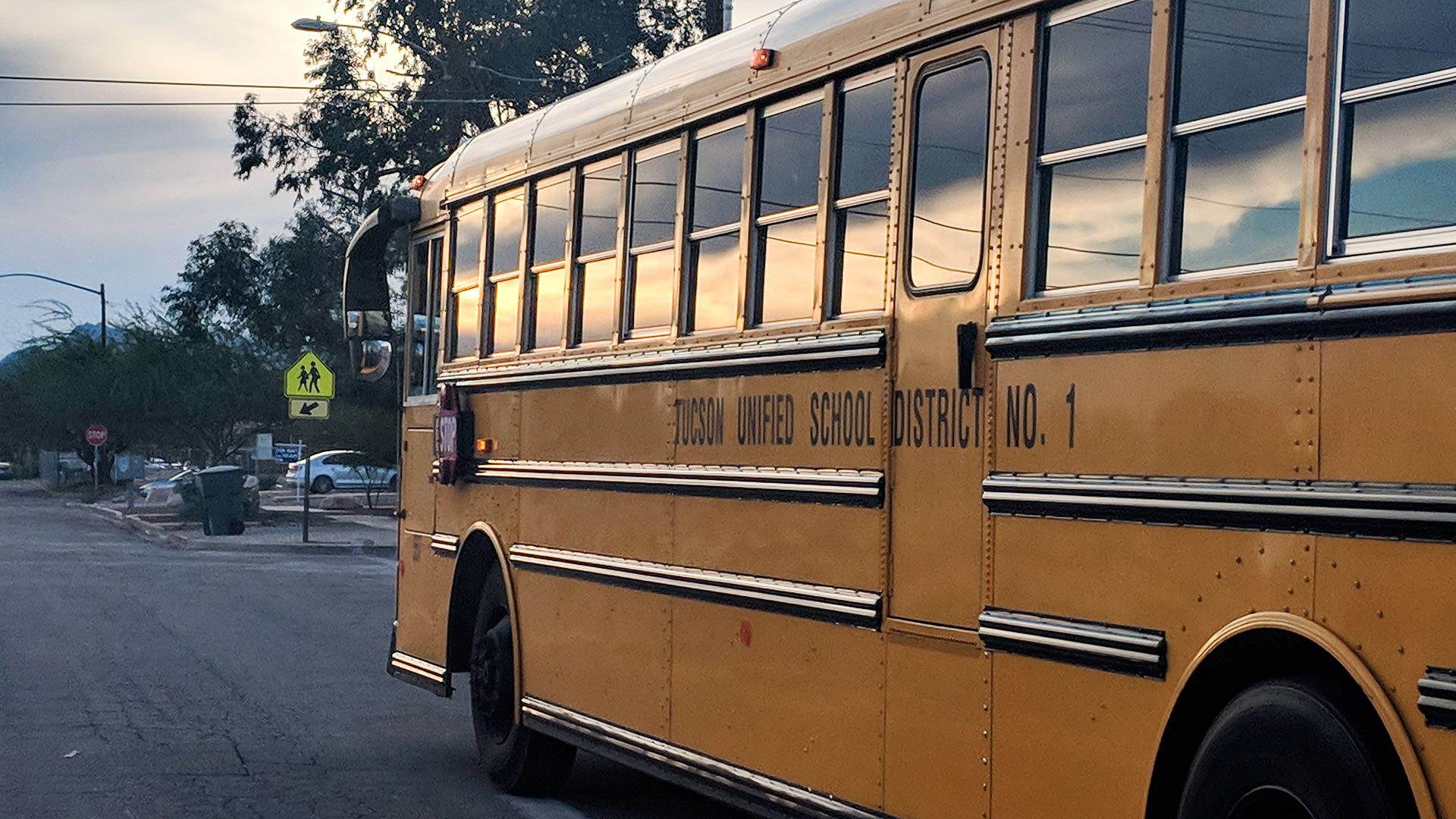 A Tucson Unified School District Bus.
A Tucson Unified School District Bus.
The Arizona Department of Education’s School Safety Task Force is now recommending that legislators remove barriers in state law to allow retired law enforcement officers to work as School Resource Officers as a way to bolster campus safety. The group met for the final time Thursday afternoon to create a list of recommendations for the legislature in their upcoming session.
The biggest issue the task force attempted to tackle was the shortage of school resource officers and mental health professionals in school. The task force says it is not a funding problem, but rather a shortage of qualified personnel. Even after the state education department awarded 301 SRO grants to schools, 138 of those schools still remain unfilled.
Director of School Safety for the Education Department Michael Kurtenbach says a shortage of active police officers strains chiefs and sheriffs trying to staff positions meaning SROs are last to be filled. For him, reserve officers could be the solution.
“If you have a reserve officer who spent 20 plus years as a career officer, has a heart for working in schools and wants to work with kids, wants to work in this multidisciplinary system, this is a pathway to allow that to happen.,” Kurtenbach said.
Current state law involving the retirement packages for retired law enforcement officers could negatively impact their tax status if they return to work.
Due to rules in the public safety retirement system, retired police officers wanting to work as School Resource Officers have to go through a third-party agency as their employer instead of their previous department. If they go back to work for their same department within six months of retiring, they risk losing their pension. The School Safety Task Force sees this as an unnecessary barrier and recommends the legislature re-examine the law.
The group’s recommendation suggests changing the state law to allow the school safety program to pay for part-time School Safety Officers and school psychologists. Right now that program pays for four positions–juvenile probation officers, counselors, social workers and full-time school resource officers.
The idea of having officers in schools has long been opposed by some, saying SROs promote the school-to-prison pipeline and funding should go towards funding psychologists and mental health resources for students.
Superintendent of Public Instruction Tom Horne disagrees.
“I have very little patience for those people because what they’re really saying is people should be able to violate the law without consequence,” Horne said during the task force’s final meeting. “The idea that people should break the law and not have consequences I think is partly what’s wrong with our society today.”
The task force also recommended adding increased mental health training as well as a school safety guidance manual and increased safety technology. However, Horne and Kurtenbach did not have a response on how much more money should be allocated for better tech but that more money would be needed outside of the $80 million grant to the School Safety Program, which will be used for funding for finding officers.
“That's gonna be a big number. There's no doubt about that,” Kurtenbach said.

By submitting your comments, you hereby give AZPM the right to post your comments and potentially use them in any other form of media operated by this institution.